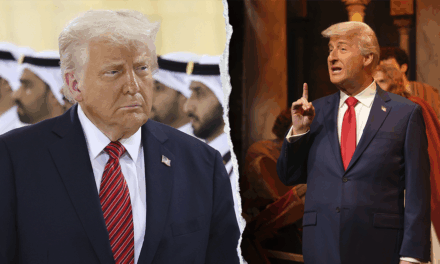In a recent statement that has caused ripples across the media landscape, the former CEO of National Public Radio (NPR) expressed regret over the organization’s intertwining of journalism with federal funding. The critique was made during an interview where she emphasized that this fusion was a “recipe for disaster” and stressed the need for greater independence in public media organizations.
The comments come at a critical juncture as public broadcasting faces increasing scrutiny over its funding sources and editorial independence. The former CEO’s remarks not only reflect her personal reflections during her tenure but also resonate with ongoing debates about public trust in journalism and the role of government funding in media institutions.
Historically, NPR has relied on a combination of sponsorships, listener donations, and federal funding to support its operations. The challenge lies in maintaining journalistic integrity while navigating these diverse financial streams— a balance that has become harder to maintain in recent years according to many observers of the media landscape.
In her interview, the former CEO candidly discussed the challenges faced during her time at NPR, notably the growing concern among journalists and listeners regarding the implications of federal funding on editorial independence. She contended that the delicate balance could easily be tilted, leading to perceptions of bias, reduced credibility, and ultimately, a diminished public trust in the media. These perceptions can have profound implications for the future of public broadcasting in America.
“I think we always knew that there were challenges posed by receiving federal funds,” the former CEO stated. “But as we grew, those pressures became more pronounced, and it was clear that something had to change.” Her acknowledgment signals a willingness to confront uncomfortable truths regarding funding structures that the public often overlooks.
The interview highlighted various instances where reporters felt conflicted about stories that could potentially be seen as politically sensitive or controversial, particularly those that involved democratic institutions or governmental operations. “Throughout my time, the fear of critique from various political avenues was ever-present. It sometimes stifled the kind of journalistic inquiry we all deemed necessary,” she remarked.
The conversation surrounding public funding for media is not limited to NPR. It extends to other organizations that operate under similar funding models, resulting in a broader discussion about how to sustain journalism in an era where financial pressures often lead to compromises in integrity.
The implications of her statements extend beyond NPR; they are indicative of a larger crisis in the media world, as many traditional journalism entities grapple with declining viewership and trust. Recent studies have shown that public confidence in news sources, particularly those mentioned in political contexts, is faltering along with declining subscription numbers, ad revenues, and memberships.
This decline has prompted public media advocates to call for a reevaluation of funding methods while simultaneously urging media organizations to embrace more independent business models. Some have suggested diversifying funding sources, including crowdfunding, private foundations, and corporate partnerships that do not impose editorial constraints. However, the ultimate challenge remains in keeping the journalistic voice untainted by any financial influences.
The former CEO’s reflections pose tough questions not only for NPR but for the entirety of the American media landscape. Is it time for public broadcasters to reconsider their financial survival strategies, or can they continue to thrive on a model that intertwines government support with journalistic enterprise?
Moreover, this issue relates closely to the ongoing discourse about media accountability. As journalistic standards have come under fire from various political factions, public media organizations face heightened expectations for unbiased reporting. That pressure intensifies when their funding is derived from public coffers, causing stakeholders to question the motives behind editorial choices.
NPR’s model of operation has come under particular scrutiny in recent years, with critics highlighting instances where federal funding was utilized to boost certain programs or initiatives that carried an implicit ideological slant. The concern among critics is that such actions compromise the organization’s public image, which is fundamentally built on serving diverse communities and presenting fact-based journalism.
The conversation generated by the former CEO serves as a wake-up call to NPR and similar organizations, reminding them of their dual responsibility to inform the public while also protecting their editorial independence. It stresses the importance of transparency in financial dealings and the necessity of developing robust frameworks to ensure that journalistic integrity is upheld above all else.
As stakeholders and policymakers deliberate the future of public broadcasting in the U.S., the acknowledgment from NPR’s former leadership should serve as a catalyst for introspection and change. It may signal a turning point—an opportunity to rethink and reshape the frameworks that govern the relationship between funding and journalism so that future generations of journalists can carry the mantle of responsible reporting free from the dual pressures of political influence and financial constraints.
Activists and media reformers are calling for an in-depth investigation into existing structures to promote a more sustainable model that prioritizes journalistic integrity while ensuring that public media serves its intended function: to educate, inform, and engage communities without fear or favor. The road ahead is fraught with complexities, yet the dialogue sparked by the former CEO’s candid acknowledgment is crucial for carving out a healthy pathway for the media.
The legitimacy of public broadcasting hinges on the trust of its audience, and maintaining that trust in today’s polarized climate poses significant challenges. However, by openly confronting the existing challenges posed by a mix of journalism and federal funding, organizations like NPR have the potential to lead by example, reinventing themselves as bastions of fair and impartial journalism in an increasingly uncompromising environment.
As the discussion around this topic continues to unfold, it undoubtedly reveals the necessity for constant vigilance and proactive measures to uphold journalistic standards in public media and beyond. The implications are vast, and only through sustained effort and introspection can the future of public broadcasting in America be reasonably safeguarded.
































